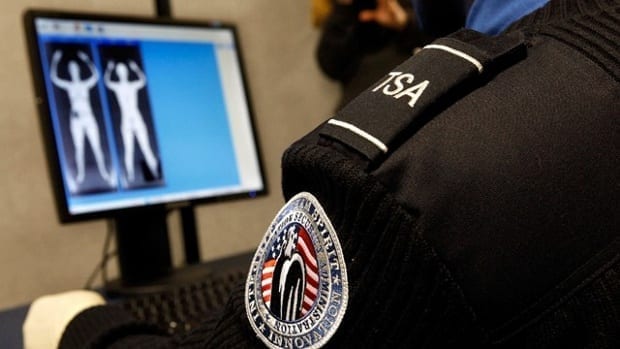6/3/2015

ABC News reported late Monday night that Transportation Security Administration (TSA) agents recently allowed 67 of 70 fake bombs through airport security checkpoints in a widespread test conducted by Homeland Security special agents under direction from the department’s Office of the Inspector General. In one case, the tester even set off the metal detector but the TSA agent was unable to locate a fake device taped to his back during a pat-down. The disturbing revelation has cost acting TSA director, Melvin Carraway the position he has held since January. Carraway has been reassigned and acting deputy director Mark Hatfield has taken over the post until a replacement is appointed. Homeland Security chief, Jeh Johnson, was briefed on the report last week at the TSA’s Arlington, Virginia headquarters, and his office has announced that Johnson “immediately directed the TSA to implement a series of actions, several of which are now in place.” Specific details of the security lapses have also been distributed throughout the nation’s airports. Homeland Security is currently completing the full report to be issued by the end of the summer.
Homeland Security has conducted these tests before by specialized “red agents”, most notably another failed test that prompted a congressional hearing in 2013. By design, the tests are extremely difficult, with former director, Jon Pistole testifying in a 2013 House of Representatives hearing that the testers “know exactly what our protocols are. They can create and devise and conceal items that … not even the best terrorists would be able to do.” In a statement, Homeland Security said, “The numbers in these reports never look good out of context, but they are a critical element in the continual evolution of our aviation security.We take these findings very seriously in our continued effort to test, measure and enhance our capabilities and techniques as threats evolve.” Secretary Johnson also reiterated that the TSA airport screening is only one of several security measures, with his spokesperson stating that “all air travelers are subject to a robust security system that employs multiple layers of protection, both seen and unseen, including: intelligence gathering and analysis, cross-checking passenger manifests against watchlists, screening at checkpoints, random canine team screening at airports, reinforced cockpit doors, Federal Air Marshals, armed pilots and a vigilant public.” Johnson also urged the Senate to approve President Obama’s nominee to be the new TSA administrator, Coast Guard Vice Admiral, Pete Neffenger.
The failed test has led to general questions about the agency’s competence. It is likely that in addition to Carraway’s removal, the failed test will result in congressional debate much like in 2013, if not new legislation as well. Senator Dan Coats (R-IN) called the results “shocking,” saying that “This has got to be a top-to-bottom effort looking at the trainers, how we hire them, how we train them, how they perform their jobs, looking at the equipment that’s supposed to detect a lot of this stuff.” House Oversight and Government Reform Committee chairman, Representative Jason Chaffetz (R-UT), who was one of the biggest skeptics during the 2013 hearing, called the report “deeply alarming.” In a joint statement, Senators Bill Nelson (D-FL), and John Thune (R-SD) wrote, “Terrorist groups like ISIS take notice when TSA fails to intercept 67 out of 70 attempts by undercover investigators to penetrate airport checkpoints with simulated weapons and explosives”
Without going into too much detail, I spent several years working with the TSA in handling specialized cargo to be shipped via airliners. Although there are strict protocols for shipping and I was thoroughly vetted on an annual basis in order to gain the TSA authorization, I have personally seen several security lapses at my points of contact. It is true that there are several layers beyond what I have experienced personally; however, I find the results of the test alarming but not extremely surprising. What I have found more surprising, to be honest, is the fact that the U.S. air travel has remained relatively safe in light of what I have witnessed firsthand. This has led me to long suspect that although existent, the actual terrorist threat to U.S. airlines has been largely exaggerated. With that being said, I agree with Senators Nelson and Thune that the degree of error that these lapses highlight may lead to future opportunism from terrorist groups, especially from the “lone wolf” attackers that ISIS is trying to recruit. I believe, however, that disclosure of these tests is a vital component for an open government, as well as giving the agency impetus for improvement, something that might not be done had this information remained classified. At the same time, this test signals to some degree, a “loss of innocence” regarding the TSA and the agency will require an extra level of vigilance moving forward.
Sources:
CNN – Eric Bradner and Rene Marsh
International Business Times – Morgan Winsor
The Hill – Keith Laing


Join the conversation!